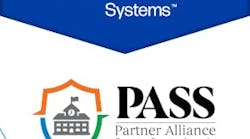ST. PAUL (AP) -- The terroristic threats that put a Harding High School student in juvenile custody rose to a level that Will Waterkamp hasn't seen in his three years as security director.
``It's the totality of it. It's the planning, the detail,'' Waterkamp said.
And because of that, school district leaders went beyond merely sending a letter home to Harding students. They decided to hold a news conference with St. Paul Police Chief John Harrington and Superintendent Pat Harvey, and to make select students at Harding available for interviews.
How to publicize foiled plans of potential violence is a double-edged sword for schools, said Ken Trump, a Cleveland-based consultant who works with school districts on safety issues. ``If they don't communicate about an incident that's averted, it gets out anyway, and school officials are criticized for not informing people.''
However, if school leaders do publicize it, he said, people ``will criticize them for making it more of an issue than it should be.''
Harding student Andrew Thomas Deutsch, a white 16-year-old, pleaded guilty Tuesday to making terroristic threats, four days after school officials found a notebook that contained threats against black classmates. No students were targeted by name.
After Deutsch's arrest, the school district went public. Trump said it's better to err on the side of getting the word out, and that St. Paul's approach was a textbook example of how to handle such an incident.
``Twenty years ago, we would have probably responded to it with a routine check to see if he had all his senses straight,'' said Lou Kanavati, an area superintendent in the St. Paul public schools and a former Harding principal.
The student might have been suspended and the parents called in for a conference.
``Columbine changed it. But even before Columbine, we had been very much alerted that these situations can develop to be very serious,'' Kanavati said.
Waterkamp added that Harding has created a climate that allows kids to come forward with information. In Deutsch's case, students found the planner on Friday.
The idea of enlisting students to help has caught on in recent years. At Lakeville High School's Web site, for example, there's a link where students can tip administrators anonymously. The school has gotten tips about fights, as well as about students battling anorexia, considering suicide, planning vandalism or coming to school drunk, said Julia Espe, principal at Lakeville.

